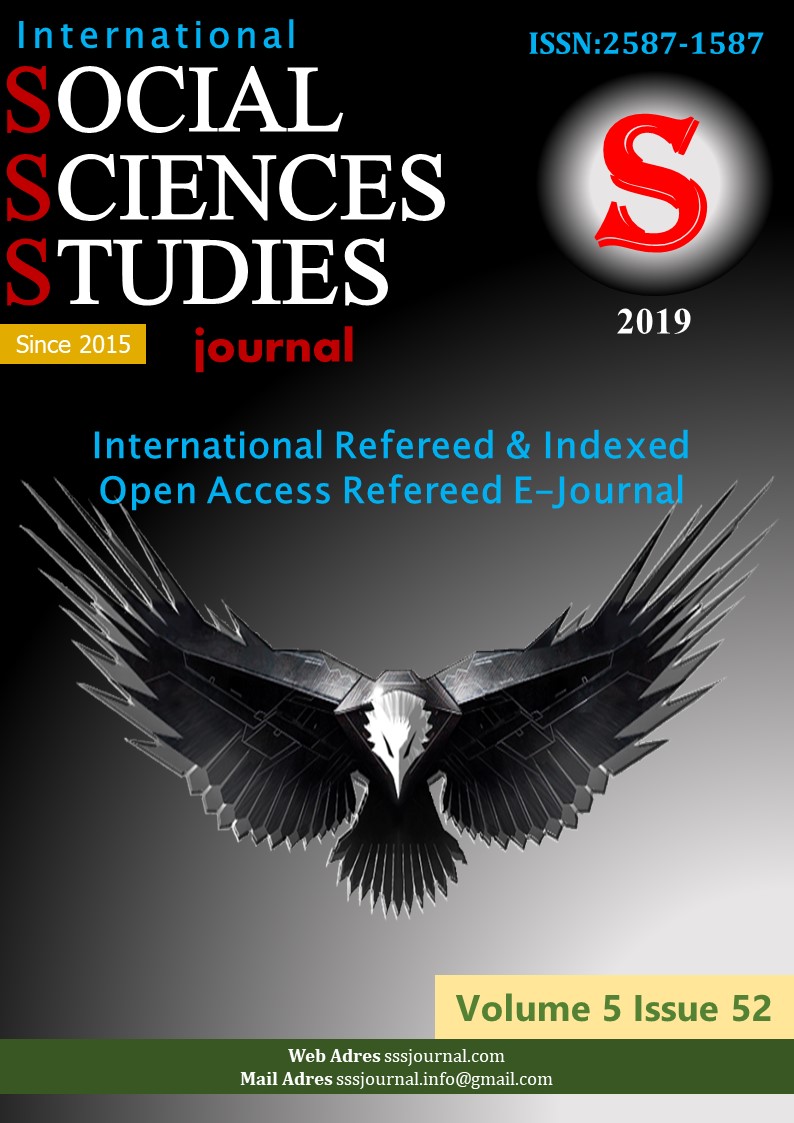Author :
Abstract
Diller her şeyden önce simgesel betimlemelerden oluşur. Bu betimlemeler sayesinde birey düşüncelerini ve duygularını anlatabilir. Bir dilin öğretimi, sadece bu dilin öğrenimi ve işleyişi ile ilgili bir betimlemeyle sınırlı tutulamaz ana dilin işleyiş kurallarının da betimlenmesi ve bilinmesi gerekir. Dil öğretim yöntemi üzerine olan düşünceler ve kavramlar, bir dilin öğretiminde önemli bir yer tutar ve bazı kuramlara ve sosyal ve kültürel bağlama göre değişiklik gösterir. Bu bağlamda, ikinci dilin öğrenme süreçlerinin altında yatan kavramsal bakış açılarını ele aldık. Zira dil öğretiminde kullanılan farklı yaklaşımların temelinde bunlar vardır. Gerçekte, yukarıda sözünü ettiğimiz etkenlere verilen öneme göre de öğretimsel müdahaleler farklı olmaktadır. Birinci dili, ikinci dilin ediniminde önemli olduğu görüşüne ağırlık veren öğreticiler karşılaştırmalı çözümlemeye “analyse contrastive” dayanan öğrenim yöntemleri geliştirdiler. Öte yandan, ikinci dilin öğreniminde birinci dilden bağımsız evrensel düzenekler görenler ise, ikinci dilde geçici edinçten “compétence transitoire” kaynaklanan hataların çözümlenmesine odaklandılar. Sonuç olarak, ana dilin edinimiyle yabancı dilin edinimindeki süreçler arasında bazı benzerlikler bulunduğu saptanmıştır, ama anadilin edinimi bazı açılardan yabancı dil ediniminden ayrılır.
Keywords
Abstract
Languages are above all symbolic descriptions through which an individual can express his ideas and feelings. Teaching a language is not limited to a single description of the learning and functioning of that language; the rules of operation of the mother language must also be described and known. Ideas and concepts related to the method of language teaching take a crucial role in the teaching of a language and vary according to certain theories and the social and cultural context. In this context, we have discussed conceptual perspectives underlying the second-language learning processes. These form the basis of the different approaches used in language teaching. In fact, educational interventions differ according to the importance given to the factors mentioned above. Teachers, who emphasized the importance of first language for second language acquisition, have developed learning methods based on comparative analysis. On the other hand, those who saw universal mechanisms independent of the first language in learning the second language focused instead on the analysis of second language errors from the transitional competence. As a result, mother language acquisition and foreign language acquisition processes have some similarities, but the acquisition of the mother language differs from the foreign language in some respects.
Keywords
- Besse, H. Porquier, R. Grammaire et didactique des langues, Didier, Paris, 1991.
- Besse, H. Porquier, R. Grammaire et didactique des langues, Didier, Paris, 1991. Bouton, P, L'acquisition d'une langue étrangère, Klincksieck, Paris, 1974.
- Gaonach, D. Théories d'apprentissage d'acquisition d'une langue étrangère, Didier, Paris, 1992.
- Galisson R. Didactique des Langues Etrangères : d'hier à aujourd'hui, la didactique générale des langues étrangères, Cle International, Paris,1980.
- Selinker, L. Interlanguage, Iral, 10. 1972, 209-231.
- Martinet A., Eléments de linguistique générale, Armand Colin. Paris, 1974.Bakhtine M. Esthétique et théorie du roman, Gallimard, Paris, 1987.
- Sophie M., Enseigner à communiquer en langue étrangère, Paris, Hachette, 1982, 4e édition 1992.Bogaards Paul, Aptitude et affectivité dans l’apprentissage des langues étrangères, Didier, Paris, 1992.
- Keller–Cohen D. Systematicity And Variation In The Nonynative Child's Acquisition ofConversational Skills in language learning, Journal of Research in Langauge Studies, Volume 29, 27-44. 1979.
- Fake C., Manual of language acquisition, Del Gruytwer, Berlin, 2014.





